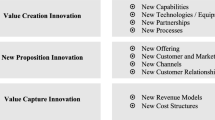Abstract
Zygmunt Bauman is arguably the most well-known theorist in postmodern ethics. He argues that to develop and enforce universal ethical laws or codes leads to an abdication of individual moral responsibility. Actors rely on external rules and a rational consideration of costs and benefits rather than on moral impulse. In order to recognize and act upon moral impulse, the moral agent must both recognize and understand the Other. We operationalize these ideas, applying them to the development of advanced information technology (AIT) in organizations. We propose that a stakeholder theory of enabling can be used to formulate processes that will give form and voice to the Other by providing mechanisms for face-to-face interactions and dialogue. Applying the principles of affirmative postmodern ethics through an enabling stakeholder oriented system development process explicitly allows for the examination of moral concerns which might otherwise be overlooked, ignored, or silenced.
Similar content being viewed by others
References
Bachrach, Peter and M. Baratz: 1970, Power and Poverty. Theory and Practice (Oxford University Press, New York).
Baker, Richard: 1996, ‘Accounting Ethics: The Search for Truth in an Age of Moral Relativism’ Research on Accounting Ethics 2.
Bauman, Zygmunt: 1993, Postmodern Ethics (Blackwell Publishers, Oxford).
Beck, U., A. Giddens and S. Lash: 1994, Reflexive Modernization (Stanford University Press, Stanford).
Boje, D., R. Gephart and T. Thatchenkery (eds.): 1996, Postmodern Management and Organization Theory (Sage, Thousand Oaks, CA).
Brenner, S. and P. Cochran: 1991, ‘A Stakeholder Theory of the Firm: Implications for Business and Society Theory and Research’ in Proceedings of the Second Annual Meeting of the International Association for Business and Society (Sundance, UT), pp. 449–467.
Burrell, G.: 1997, Pandemonium (Sage, Thousand Oaks, CA).
Calton, J. and N. Kurland: 1996, ‘A Theory of Stakeholder Enabling’ in D. Boje, R. Gephart and T. Thatchenkery (eds.), Postmodern Management and Organization Theory (Sage, Thousand Oaks, CA), pp. 154–177.
Deetz, S.: 1995, Transforming Communication, Transforming Business: Building Responsive and Responsible Workplaces (State University of New York Press, Albany).
Donaldson, T. and T. Dunfee: 1994, ‘Toward a Unified Conception of Business Ethics: Integrative Social Contracts Theory’ Academy of Management Review 19(2), 252–284.
Evan, W. and R. Freeman: 1993, ‘A Stakeholder Theory of the Modern Corporation: Kantian Capitalism’ in T. Beauchamp and N. Bowie (eds.), Ethical Theory and Business, 4th ed. (Prentice-Hall, Englewood Cliffs, NJ), pp. 75–84.
Firat, A. and A. Venkatesh: 1993, ‘Postmodernity: The Age of Marketing’ International Journal of Research in Marketing 10, 227–249.
Freeman, R. and W. Evan: 1990, ‘Corporate Governance: A Stakeholder Interpretation’ Journal of Business Economics 19(4), 337–359.
Giddens, Anthony: 1990, The Consequences of Modernity (Stanford University Press, Stanford).
Goodpaster, K.: 1991, ‘Business Ethics and Stakeholder Analysis’ Business Ethics Quarterly 1(1), 53–73.
Heckscher, C.: 1994, ‘Defining the Post-bureaucratic Type’ in C. Heckscher and A. Donnellon (eds.), The Post-bureaucratic Organization: New Perspectives on Organizational Change (Sage, Thousand Oaks, CA), pp. 14–62.
Heydebrand, W.: 1989, ‘New Organizational Forms’ Work and Occupations 16(3), 323–357.
Hopwood, A. and P. Miller (eds.): 1994, Accounting as Social and Institutional Practice (Cambridge University Press, Cambridge).
Hosseini, J. and S. Brenner: 1992, ‘The Stakeholder Theory of the Firm: A Methodology to Generate Value Matrix Weights’ Business Ethics Quarterly 2(2), 99–119.
Ignatieff, Michael: 1985, ‘Is Nothing Sacred? The Ethics of Television’ Daedalus 114(5), 57–78.
Larrabee, M. J.: 1993, An Ethic of Care (Routledge Chapman and Hall, Great Britain).
Latour, B.: 1991, ‘The Impact of Science Studies on Political Philosophy’ Science, Technology and Human Values 16(1), 3–9.
Jensen, K.: 1992, ‘The Politics of Polysemy: Television News, Everyday Consciousness and Political Action’ in P. Scannell, P. Schlesinger and C. Sparks (eds.), Culture and Power: Media, Culture and Society Reader (Sage, London).
Rorty, Richard: 1989, Contingency, Solidarity, and Irony (Cambridge University Press, Cambridge).
Rosenau, Pauline: 1992, Post-Modernism and the Social Sciences (Princeton University Press, Princeton, NJ).
Rossouw, G.: 1994, ‘Rational Interaction for Moral Sensitivity: A Postmodern Approach to Moral Decision Making in Business’ Journal of Business Ethics 13(11), 11–20.
Tester, K.: 1994, Media, Morality, and Society (Routledge, London).
Walton, C.: 1993, ‘Business Ethics and Postmodernism: A Dangerous Alliance’ Business Ethics Quarterly 3, 285–305.
Author information
Authors and Affiliations
Rights and permissions
About this article
Cite this article
Yuthas, K., Dillard, J.F. Ethical Development of Advanced Technology: A Postmodern Stakeholder Perspective. Journal of Business Ethics 19, 35–49 (1999). https://doi.org/10.1023/A:1006145805087
Issue Date:
DOI: https://doi.org/10.1023/A:1006145805087




